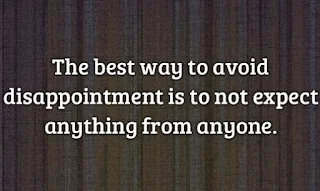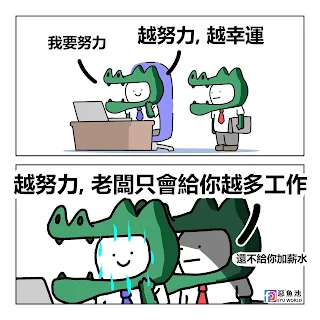Surviving At Work
Introduction
Entering the workforce can be a culture shock.
- Things that were once clear-cut may now be more complicated.
Common Sense
I distinctly recall my colleague advising a junior pharmacist, "You will notice that my approach to handling customers varies depending on the individual. Each person requires a unique approach, depending on how close we are and their personality. It is impossible for me to guide you through every scenario, so you will need to develop some common sense."
I nodded in agreement. One of the challenges I have observed is the difficulty in fostering the so-called common sense in each individual.
- Nurtured under different cultural backgrounds and exposed to diverse experiences, we all possess distinct working styles.
- Somehow, common sense is not so common.
Personally, I find it simpler to provide a junior with a comprehensive overview of crucial steps and knowledge when pressed for time to verify their work.
- Years ago, I encountered an instance where a fresh provisionally registered pharmacist bought offered insulin stocks back to the hospital but neglected to store them back in the refrigerator, leaving them in the cold box overnight instead. Consequently, a cold chain breach occurred.
Often, the underestimation of common sense poses significant risks.
- Hence, stop expecting other individuals to provide the things that you think he should do and annoyed by the end result.
- Instead, focus on communicating your needs clearly and respectfully.
Proactivity
From a young age, proactivity is often praised as a highly desirable quality, but can sometimes be exploited.
- The reality is that when you demonstrate greater capability, you may find yourself burdened with an increasing workload, often without receiving adequate recognition or compensation.
- Driven by a strong sense of personal ethics, you diligently complete your tasks but the overwhelming workload leaves you feeling exhausted and resentful, especially when your efforts are met with criticism.
Furthermore, your extra efforts often go unnoticed and unappreciated. Instead, you may find yourself attracting negative attention from those who perceive you as a threat to their own position or status.
- For every simple action you take, there may be colleagues who complain about you behind your back, further undermining your morale and motivation..
Despite your tireless contributions and unwavering dedication, you may find yourself easily dismissed when circumstances change or your skills are no longer deemed essential.
- This raises a crucial question: who are we working hard for?
While proactivity is a valuable trait, it is important to strike a balance between taking initiative and demonstrating your capabilities, while also safeguarding your well-being and protecting yourself from exploitation.
The Right Attitude
Over the years, your initial enthusiasm for work has transformed into a more reflective state.
- The relentless pursuit of perfection and the unwavering commitment to helping others has taken a toll on your emotional resilience.
- Moreover, it is generally difficult for a single person to change an individual or organizational culture. Dramatic overnight transformations are rare, and cultural shifts often take time and consistent effort.
- Before you realise, you start to crave for a carefree life, where you can prioritize your own needs and aspirations without feeling the constant pressure to excel and please others.
Remember, your work is just a job, not a badge of honour.
- Prioritize completing your own tasks on schedule and avoid taking on responsibilities that belong to others.
- Focus on your own well-being, for the world does not yet require your salvation.
Take a step back, reassess your priorities and embrace a life that aligns with your true desires and aspirations.
Summary
When we repeat something daily without purpose, the initial passion can fade, make it feel like work.
- The simple joy of doing is overshadowed by deadlines and expectations.
There is hardly any easy jobs with high income existing.
- In general, jobs that are considered to be more challenging or stressful tend to pay higher salaries to compensate for the increased demands placed on the employee.



Comments
Post a Comment